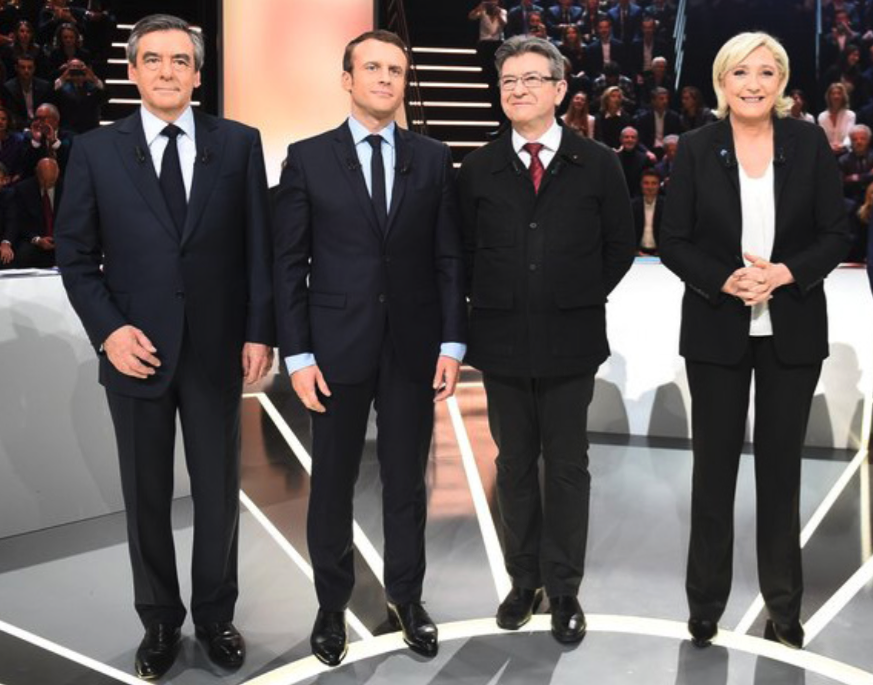In two days, on Sunday, April 23, French voters will head to the polls for the first round of voting in their country’s presidential election, after a long and tumultuous campaign season. Last November, facing a historically low, single-digit approval rating, outgoing President Francois Hollande decided not to seek reelection. Currently, the field is dominated by with candidates from emerging parties such as En Marche! and the National Front achieving widespread popularity.
The two candidates who emerge on Sunday with the greatest popular vote percentage will advance to a final round on May 7th, and while the race has tightened in recent weeks, centrist Emmanuel Macron and far-right leader Marine Le Pen appear the most likely to make it to the next round. For the sake of French, European, and global stability and prosperity, voters should not succumb to the pressure from Ms. Le Pen’s radical National Front movement and instead elect Mr. Macron as president of France.
Undoubtedly, the French people want a change from the current Hollande administration. Having risen steadily since the 2008 financial crisis, France’s unemployment rate is now around 10%. Additionally, many French citizens are concerned about national security after recent terrorist attacks in Paris and Nice. Even Mr. Hollande’s own party has accused him of abandoning his principles and shifting to the right due to increased pressure. As a result of Mr. Hollande’s follies, the road to the presidency has become very difficult for any member of his socialist party. For many French people, this election is an opportunity for drastic change. However, that change should be provided by the centrist, Mr. Macron, rather than the demagogue, Ms. Le Pen.
Mr. Macron has built his campaign on a message of hope and progress. He has called for an increase in public spending to boost the French economy, which includes plans to invest 50 billion euros in sectors such as clean energy, education and training for workers, infrastructure, and healthcare. Additionally, he wants to cut taxes to further help combat the high unemployment. These expansionary policies will improve the French economy while also helping promote initiatives such as the clean energy movement.
Additionally, Mr. Macron believes increasing spending in education will help him decrease class size and raise teacher pay to promote productivity in the classroom. Although he is promoting fiscal expansion, he also hopes to increase the efficiency of the government to cut costs and balance the country’s deficit. He plans to shrink the size of the government bureaucracy by reducing the number of lawmakers and local authorities and cutting spending by getting more people working and off unemployment benefits. Overall, Mr. Macron’s policies are pragmatic and promote economic progress for all French citizens.
Furthermore, Mr. Macron’s vision for France promotes a culture of inclusion. He wants to promote secularism and the separation of church and state in public policy. He is firmly against a ban on the Muslim veil. He is also open to allowing immigrants and refugees into France, so he wants all asylum requests to be processed within six months of application.
In contrast, Ms. Le Pen has based her campaign on hatred and divisiveness. She is strictly opposed to multiculturalism, whereas Mr. Macron wants to give every 18 year old a 500 euro subsidy to experience different cultures through movies, theater shows, concerts, and other artistic experiences. She also is a big threat to the stability of Europe, as she has promised to remove France from the European Union. Ms. Le Pen is a hardliner when it comes to immigration, proposing to only allow in 10,000 people a year. With such strict policies on immigration, even the British far-right UKIP party has been quick to distance itself from Ms. Le Pen’s National Front. Like our own President Trump, her platform opposes globalization, as she believes it poses a threat to France’s wellbeing.
After recent far-right victories in the Brexit referendum and the U.S. Presidential election, it is more than the right time to halt the trend toward fervent nationalism and isolationism, to protect the E.U. and international relations. Ultimately, in this election, Mr. Macron, not Ms. Le Pen, is the only candidate to ensure stability for not only France but the rest of the world as well.





